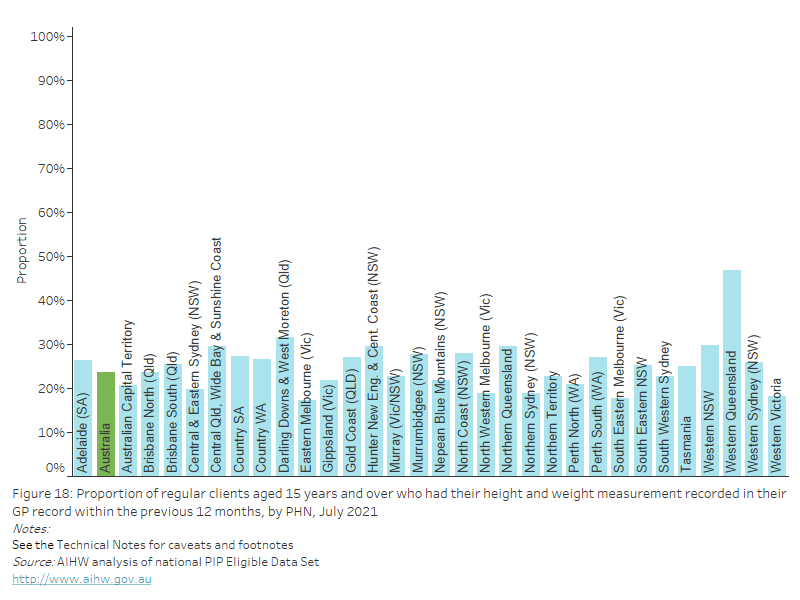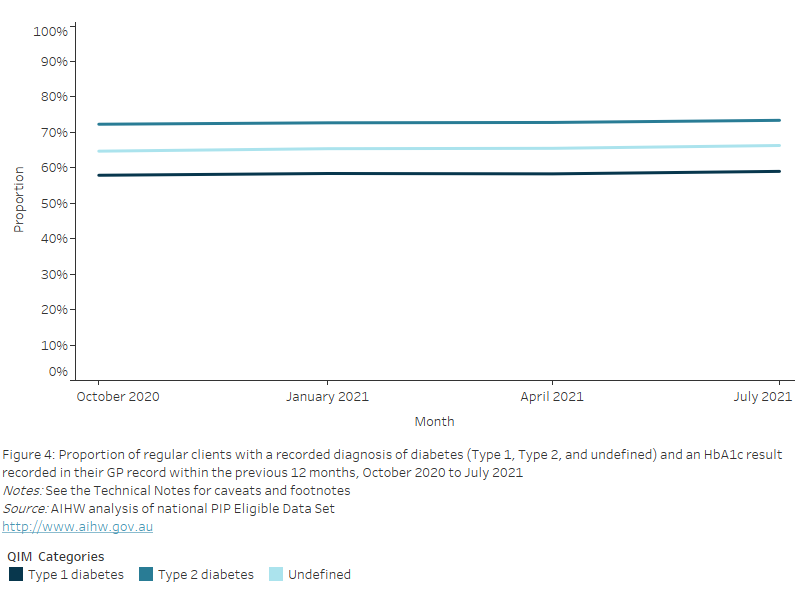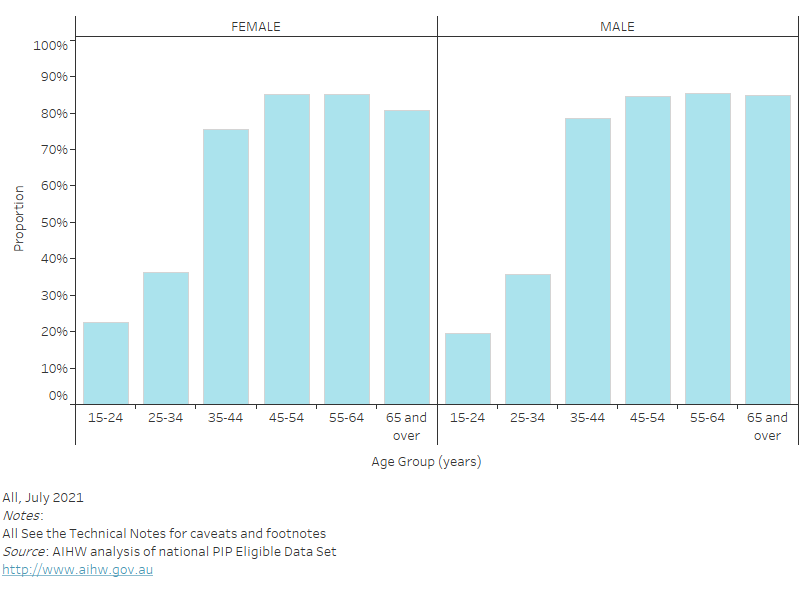QIM 10: Proportion of regular clients with diabetes with blood pressure recorded in their GP record within the previous 6 months
Cardiovascular disease (CVD) is the leading cause of death in people with diabetes, making regular assessment, prevention and management of CVD risk factors such as blood pressure, lipid levels etc. a vital part of diabetes care. For people with Type 1 or Type 2 diabetes, managing blood pressure can help assure appropriate medical care to lower the risk of macro vascular (stroke, heart attack and heart failure) and microvascular (kidney disease, eye disease and peripheral neuropathy) complications (RACGP 2020).
Capture of results recorded outside of the general practice setting
Some patients with diabetes may receive care from other practitioners in addition to a GP including an endocrinologist/a specialist physician, and/or other health care providers to safely manage their diabetes (RACGP 2020). Results arising from clinical intervention conducted outside of the service that are known and recorded by the practice are included in the measure. However, sometimes blood pressure recorded elsewhere (for example, specialist service) is not recorded in the clinical information system of the client’s usual general practice (for example, due to incompatible clinical information system between a practice and a specialist service), meaning that these data will not be captured in the report.
Other sources of relevant data
Data on prevalence of long-term health conditions like diabetes are captured in the National Health Survey (NHS) conducted by the Australian Bureau of Statistics (ABS). There are other administrative data collections where the data from these client-provider interactions are captured, e.g. Medicare Benefits Schedule (MBS), the National Diabetes Service Scheme (NDSS) register, the Australasian Paediatric Endocrine Groups (APEG) state and territory registers etc.
This indicator reports on the proportion of regular clients who have Type 1 or Type 2 diabetes, or an undefined diabetes diagnosis, hereafter described as diabetes who had blood pressure recorded in their GP record within the previous 6 months.
As of July 2021, nationally, 58.7% of regular clients with diabetes who had blood pressure recorded in their GP record within the previous 6 months. This varied from 51.4% to 66.4% across PHNs.
Figure 48: Proportion of regular clients with diabetes (Type 1, Type 2, undefined) with blood pressure recorded in their GP record within the previous 6 months, by PHN, July 2021

Nationally, between October 2020 and July 2021, the proportion of regular clients with diabetes who had blood pressure recorded in their GP record within the previous 6 months, increased by 6.7% from 52.0% to 58.7%.
Figure 49: Proportion of regular clients with diabetes (Type 1, Type 2, undefined) with blood pressure recorded in their GP record within the previous 6 months, October 2020 to July 2021

Proportion of regular clients with diabetes with blood pressure recorded in their GP record within the previous 6 months, by age and sex
As of July 2021, nationally, the proportion of regular clients with diabetes who had blood pressure recorded in their GP record within the previous 6 months increased with age and was:
- highest in the 65 years and over age group for both females (64.1%) and males (64.3%).
- lowest in the 0–14 years age group for females (7.7%) and males (6.3%).
Figure 50: Proportion of regular clients with diabetes (Type 1, Type 2, undefined) with blood pressure recorded in their GP record within the previous 6 months, by age and sex, July 2021

- Clinical definitions for diabetes vary across clinical information systems, as different coding schemes are used. This may lead to some variation in the number of clients who will be picked up by different systems (Department of Health 2017).
- Results arising from measurements conducted outside of the service that are known and recorded by the service are included in the measure.
- A client is classified as having Type 1 or Type 2 diabetes, or a diagnosis which indicates diabetes but does not specify between Type 1 or Type 2, listed as a diagnosis in their GP record. If a client had gestational diabetes but also has Type 1 or Type 2 diabetes, they are included in the measure.
- Clients are excluded from the measure if they had:
- secondary diabetes, gestational diabetes mellitus (GDM), previous GDM, impaired fasting glucose, impaired glucose tolerance,
- results from measurements conducted outside of the service that were not available to the service; and had not visited the service in the previous 6 months.
- There are other administrative data collections where the data from these client-provider interactions are captured for example, Medicare Benefits Schedule (MBS), the National Diabetes Service Scheme (NDSS) register, the Australasian Paediatric Endocrine Groups (APEG) state and territory registers.
RACGP 2020b. Management of type 2 diabetes: A handbook for general practice. East Melbourne, Vic: RACGP. Viewed 12 August 2021.
Department of Health 2017. National Key Performance Indicators for Aboriginal and Torres Strait Islander primary health care - Data Validation Project Report. Canberra: Department of Health.


